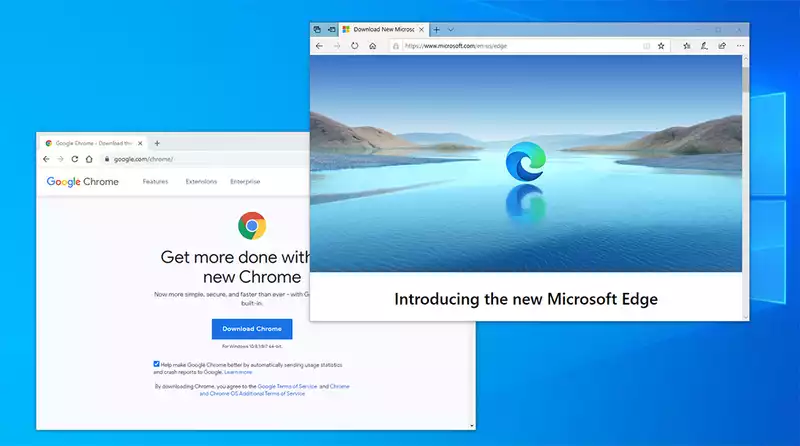Last month, Microsoft blogged about a new feature in the May 2020 Windows 10 update that could dramatically reduce RAM usage in the Edge browser. Google has decided to disable this feature in Chromium, the underlying architecture that drives Edge and its Chrome browser.
The feature is a Windows RAM management method called segmented heap. And initially, Google seemed excited about this development as well, with early tests "suggesting that it could save hundreds of MB in the browser: ...... They noted that "the biggest savings will be on many-core machines.
So what happened? Google's Chromium team decided to disable the feature after Intel engineers discovered the potentially unfortunate trade-off of increased CPU usage. Specifically, engineers noted a performance hit of up to 6.2% in a series of browser benchmarks on a test system with a Core i9 9900K (one of the best CPUs for gaming).
Following this, Google engineers found that the segment heap feature could further negatively impact performance.
This is where Google and Microsoft came into conflict. Google is concerned enough to decide to disable the feature for the time being, while Microsoft argues that the memory savings are worth the CPU hit.
"It is common to trade one resource for another. In many cases, an increase in memory usage is exchanged for a decrease in CPU usage. In this case, it is an increase in CPU usage and a dramatic decrease in memory usage, or more accurately, a commitment," a Microsoft engineer responded
in an ongoing thread on the issue.
The engineer also noted that there are only two viable options: make major changes to the browser's entire code base or improve the performance of the segment heap feature. The latter is something only Microsoft can do and is currently under investigation.
"In the short term, this is a good trade-off between one resource and another, since memory/commit usage is an important pain point for browser users," the Microsoft engineer added.
In addition, another poster in this thread, although not explicitly identified, sided with Microsoft and told the Chromium team that they "need to seriously reconsider their plans to delay activation" of the segment heap feature.
The Chromium team was unmoved by this argument; Bruce, one of Chromium's engineers, responded that increased CPU usage could negatively impact laptop battery life. Therefore, the feature was officially put on hold, but Bruce added that he did not think it would last long.
Thanks to Techdows
for their help.

Comments